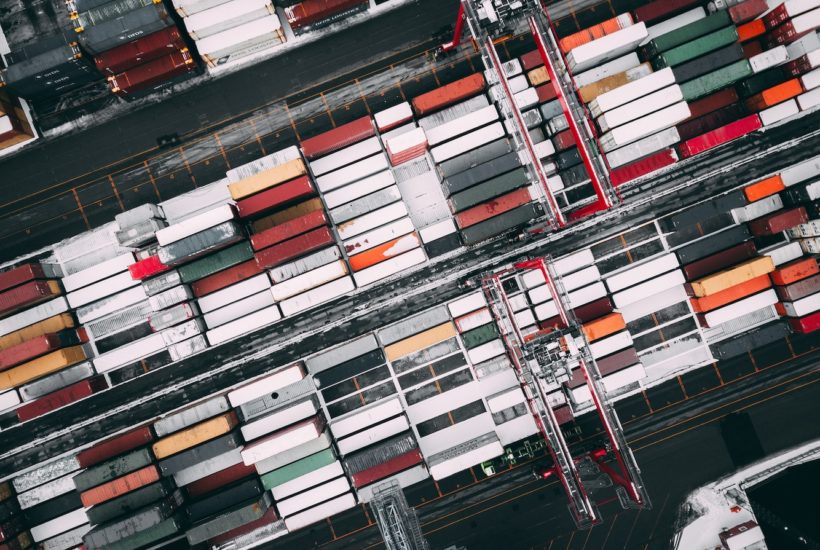Africa
South Africa’s free trade area becomes a reality
Between elections and the completion of the free trade area, 2020 promises to be a breathtaking year for the African continent. The Continental Free Trade Area could increase African trade by 60% by 2022 and the combined gross domestic product would reach $2.5 billion. According to Malawi’s trade director, African countries have a 15-year deadline to remove tariffs.

2020 will mark a turning point for the African continent. Indeed, with the ratification in Sierra Leone in April 2019, the Continental Free Trade Area (CAFTA) has become a reality. While it was officially launched in July at the African Union (AU) summit in Niamey, the next few months will be decisive.
According to the established timetable, the market, which is comprised of more than 1.2 billion people, should be active as of July 1, 2020. However, the first benefit could be a long time coming. Cristina Chatima, Malawi’s trade director, stated in a summit that “the least developed countries have ten years to remove tariffs. A group of six countries (among the least developed, including Niger and Malawi),”. She also mentioned that they “have been given a 15-year deadline.”
Nevertheless, the AU estimates that the FTA could increase intra-African trade by almost 60% by 2022. The combined domestic product gross would be $2.5 billion. The stimulation of trade – of which only 15% is currently within the continent – will initially benefit industrialized countries, such as Egypt and South Africa.
The Born2Invest mobile app delivers breaking news and trusted, in-depth reporting from Africa and the rest of the world. Get all economic news, business strategies, and many other trending news for you to keep informed.
The new budget is going to set the tone in the country
Two years after the election of Cyril Ramaphosa, the country is still paying for the management of Jacob Zuma, mired in scandals related to the “State Capture.” Its national airlines, Eskom as well as South African Airways, the engines of the national economy, are over-indebted.
Growth continued to slow to 1.9% in 2019 according to the International Monetary Fund (IMF). Unemployment, which is endemic, is stagnating at 29%. The presentation of the new budget in February will set the tone for the coming months.
According to the IMF, seven other African countries are in debt distress, including Mozambique, South Sudan, and Zimbabwe. Nine others are at “high risk” of debt rising to worrisome levels, including Ghana, Cameroon, and Ethiopia. However, Ethiopia, will be able to count on the start-up of the Renaissance Dam, scheduled for this year.
The structure, which is expected to become Africa’s largest hydroelectric power station with an output of 6,000 megawatts, is, however, hotly contested by neighboring Egypt, which fears serious environmental consequences.
Prosperity could bring stability to the continent
One of the biggest challenges facing Africa is how to bring prosperity to a region so often mired in corruption and instability. The FTA offers a unique opportunity for African nations to come together and build a common framework of rules and norms which could allow the continent to rapidly increase intra-African trade and provide a huge boon to the continent in general.
Similar parallels can be seen in Europe. While the EU is mired in difficulty it has generally been a positive force for the region and has enabled a number of ex-soviet states, particularly Poland, to rapidly grow and improve the lot of their citizens.
It will be some time before we know the full effects of the FTA in Africa but if the AU should push for greater integration in the long term this could prove highly beneficial for one of the planet’s most high-potential regions.
__
(Featured image by Erik Odiin via Unsplash)
DISCLAIMER: This article was written by a third party contributor and does not reflect the opinion of Born2Invest, its management, staff or its associates. Please review our disclaimer for more information.
This article may include forward-looking statements. These forward-looking statements generally are identified by the words “believe,” “project,” “estimate,” “become,” “plan,” “will,” and similar expressions. These forward-looking statements involve known and unknown risks as well as uncertainties, including those discussed in the following cautionary statements and elsewhere in this article and on this site. Although the Company may believe that its expectations are based on reasonable assumptions, the actual results that the Company may achieve may differ materially from any forward-looking statements, which reflect the opinions of the management of the Company only as of the date hereof. Additionally, please make sure to read these important disclosures.
First published in LePoint, a third-party contributor translated and adapted the article from the original. In case of discrepancy, the original will prevail.
Although we made reasonable efforts to provide accurate translations, some parts may be incorrect. Born2Invest assumes no responsibility for errors, omissions or ambiguities in the translations provided on this website. Any person or entity relying on translated content does so at their own risk. Born2Invest is not responsible for losses caused by such reliance on the accuracy or reliability of translated information. If you wish to report an error or inaccuracy in the translation, we encourage you to contact us.

-

 Crypto6 days ago
Crypto6 days agoUniswap and BlackRock Partner to Launch BUIDL in DeFi
-

 Cannabis2 weeks ago
Cannabis2 weeks agoScientifically Verified F1 Hybrids Set New Benchmark for Indoor Cannabis Yield and Consistency
-

 Biotech2 days ago
Biotech2 days agoNew Molecular Clues Explain Aggressive Neuroblastoma and Point to Targeted Treatments
-

 Fintech1 week ago
Fintech1 week agoImpacta VC Backs Quipu to Expand AI-Driven Credit Access in Latin America

























